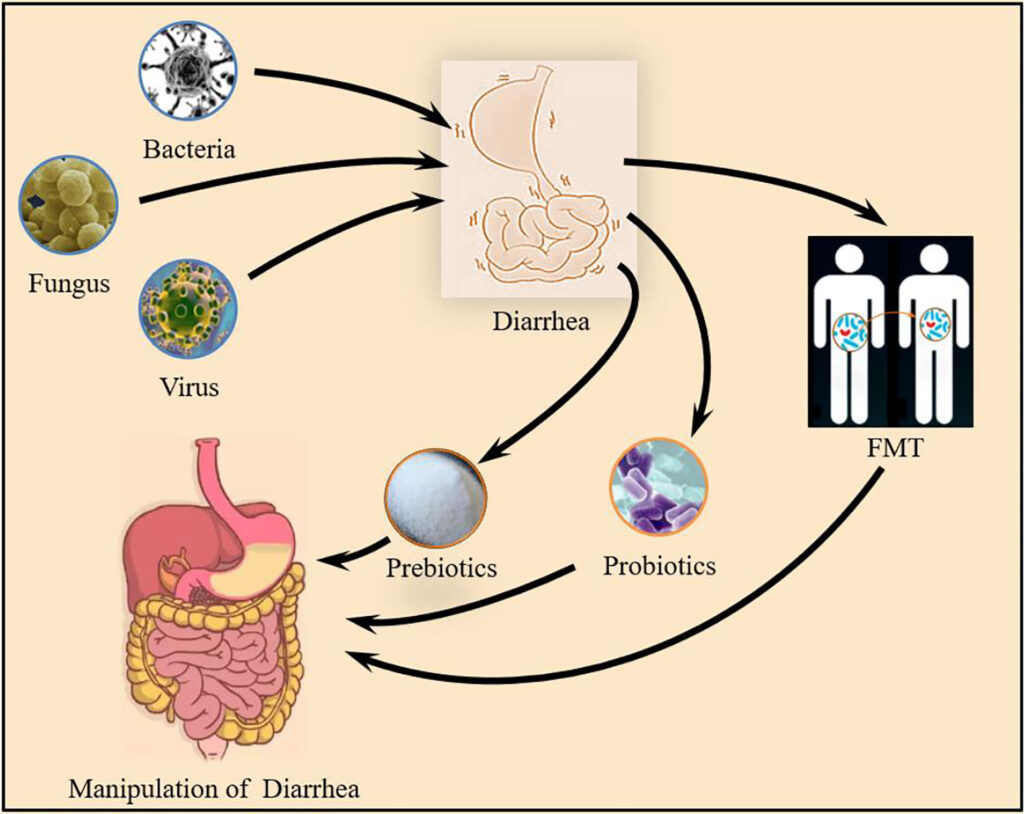Bacterial diarrhea is a condition characterized by frequent, loose, or watery stools caused by bacterial infections in the digestive system. Unlike viral or parasitic diarrhea, bacterial diarrhea often results from consuming contaminated food, water, or contact with infected individuals. Prompt diagnosis and treatment are crucial to prevent complications.

Common Causes of Bacterial Diarrhea
1. Contaminated Food and Water
Contaminated food or beverages often harbor bacteria like Escherichia coli (E. coli), Salmonella, and Campylobacter. These pathogens multiply rapidly in improperly stored or cooked food, leading to gastrointestinal infections.
2. Poor Hygiene Practices
Insufficient handwashing and contact with infected surfaces contribute to the spread of bacterial diarrhea. This is especially prevalent in areas with limited access to clean water and sanitation facilities.
3. Travel to High-Risk Areas
Travelers visiting regions with inadequate sanitation may contract traveler’s diarrhea, primarily caused by bacteria like E. coli or Shigella.
Symptoms of Bacterial Diarrhea
The symptoms of bacterial diarrhea vary depending on the pathogen but typically include:
- Frequent, watery stools
- Abdominal pain and cramping
- Fever
- Nausea and vomiting
- Blood or mucus in the stool (in severe cases)
- Dehydration, characterized by dry mouth, fatigue, and reduced urination
High-Risk Populations
- Children and Infants: Their immune systems are less developed, making them vulnerable to severe dehydration.
- Elderly Individuals: Aging reduces immunity and increases susceptibility.
- People with Chronic Illnesses: Conditions like diabetes or immunodeficiency disorders heighten the risk of complications.
Diagnosing Bacterial Diarrhea
Medical History and Physical Examination
Doctors often begin by reviewing the patient’s recent dietary habits, travel history, and symptoms.
Stool Analysis
A stool culture identifies the specific bacteria responsible, guiding effective treatment.
Additional Tests
In severe cases, blood tests or imaging studies may be required to rule out complications.
Treatments for Bacterial Diarrhea
1. Hydration Therapy
Maintaining fluid balance is critical. Oral rehydration solutions (ORS) replenish lost electrolytes effectively. In severe dehydration, intravenous fluids may be necessary.
2. Antibiotics
Antibiotics are prescribed for certain bacteria, such as Shigella or Campylobacter, but indiscriminate use can lead to antibiotic resistance.
3. Dietary Adjustments
A bland diet including foods like bananas, rice, applesauce, and toast (BRAT diet) can help alleviate symptoms. Avoid spicy, greasy, or high-fiber foods.
4. Probiotics
Probiotics restore gut flora balance and may reduce the duration of diarrhea. Strains like Lactobacillus and Saccharomyces are commonly recommended.
Prevention Strategies
1. Practice Good Hygiene
Frequent handwashing with soap and water minimizes bacterial transmission.
2. Ensure Safe Food Practices
- Cook food thoroughly.
- Avoid raw or undercooked meats and seafood.
- Wash fruits and vegetables before consumption.
3. Use Clean Water Sources
Drink bottled or boiled water when traveling in areas with poor sanitation.
4. Vaccination
Vaccines like those for Vibrio cholerae (cholera) can protect against specific bacterial pathogens.
Complications of Untreated Bacterial Diarrhea
- Severe dehydration and electrolyte imbalances
- Hemolytic uremic syndrome (HUS) caused by E. coli infections
- Chronic gastrointestinal disorders
- Malnutrition in children
Bacterial diarrhea is a preventable and treatable condition that requires prompt attention to avoid severe complications. By adhering to safe food and water practices, maintaining hygiene, and seeking early medical intervention, individuals can protect themselves and their communities from bacterial infections.